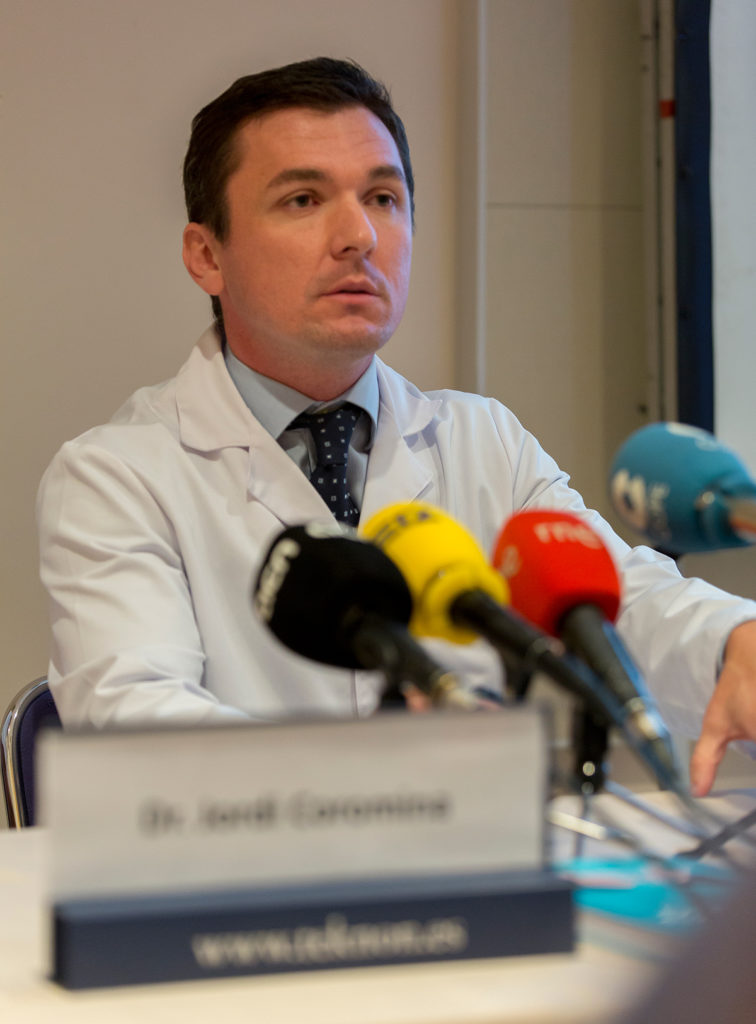Top 13 most frequently asked questions about halitosis (bad breath).
Dr Jonas Nunes, recognised expert in halitosis and Director of the Breath Institute, answers the most frequently asked questions about halitosis (bad breath).
10. How can I prevent halitosis?
A distinction is made between physiological halitosis (e.g. which all of us have when we first wake up or during long periods of fasting) and pathological or chronic halitosis (which occurs in a different way, even shortly after eating or brushing one’s teeth).
Pathological halitosis is very difficult to prevent. The way to avoid halitosis is not through prevention but through treatment (once we have been able to determine the cause). Physiological halitosis (which in many cases is linked to poor hygiene), can be avoided using various strategies, such as: eating every four hours; avoiding strongly seasoned or smelling foods; avoiding alcohol or coffee; avoiding tobacco; avoiding diets rich in protein and calories, and rich and greasy good; drinking 1.5 litres of water a day; avoiding breathing through the mouth; and lastly, two basic oral hygiene habits: using dental floss and tongue scraping.
However, if after trying all of the above strategies the bad breath persists then the halitosis is pathological (and not physiological), and booking a specialist halitosis consultation is necessary. It is important to highlight this point as many patients who come to us have compulsive habits, such as brushing their teeth or using mouthwash five or six times a day. Although we understood why they engage in these habits to prevent bad breath from appearing at all costs, the overzealous use of preventative care (when halitosis is pathological) does not bring about any lasting benefit.
“The regular use of dental floss and regular tongue scraping is more effective in preventing halitosis then regularly using mouthwash”.
As regards the key oral hygiene habits for preventing bad breath, many studies comparing mouthwash users against non-mouthwash users, have found that two hours after mouthwash is used, there is no difference in the breath (i.e. two hours after using the mouthwash the average state of the breath of individuals using mouthwash is the same as those who do not). This is something that patients, prior to their first consultation, have already noticed and confirmed for themselves.
Unfortunately, such information is not usually publicised due to the massive influence of commercial interests. However, there are studies published on this topic that can be accessed via the main international medical databases (such as those of prestigious US libraries PubMed and Medline).
On the other hand, when comparing the breath of individuals who use dental floss and/or a tongue scraper against those who do not, it has been observed that the latter group scored a lot worse. To conclude, the regular use of dental floss and regular tongue scraping are better ways of preventing halitosis than regularly using mouthwash.
Curing and treating halitosis
01. Is there a cure for halitosis?
02. How can I combat, eliminate or cure halitosis?
Causes and types of halitosis
03. What are the causes of halitosis (bad breath)?
04. What are the different types of halitosis?
05. Can the stomach cause halitosis?
06. What causes halitosis in babies and young children?
Diagnosis and treatment of halitosis
07. Do devices to measure halitosis exist?
08. How does a halitosis consultation work?
09. How much does a complete course of treatment to get rid of halitosis cost?
Preventing and avoiding halitosis
10. How can I prevent halitosis?
11. Which chewing gums and mouthwashes should I use to get rid of halitosis?
12. What home remedies or natural solutions currently exist to combat halitosis?
A solution for halitosis
Know your Breath.
Did you know that you can suffer from bad breath without realising it? Many people suffer from halitosis (bad breath) on a regular basis, regardless of gender, age or social class. Furthermore, halitosis can have a profound impact on self-esteem, and can even result in discrimination and social exclusion.
To clear up any doubts you may have, please complete our online questionnaires and find out the results immediately.
